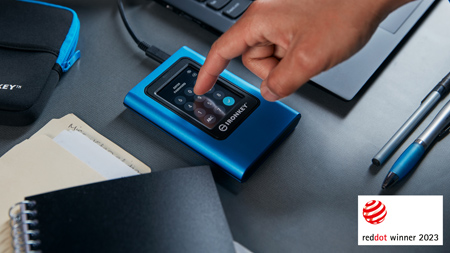Law firms compile, review, and analyze enormous amounts of data related to highly sensitive financial information, intellectual property, business strategies, and other personal agreements.
Also, ensuring the security of their customers’ information is a top priority for them. And they have no margin for error because this is a business built on trust and confidentiality.
Appropriate security protocols and delivery methods should be in place not only to share case materials with approved internal parties within the firm (attorneys, paralegals, financial and tax experts), externally with clients and opposing lawyers, but also to protect information against cyberattacks from outside.
Businesses continually face threats from hackers, cybercriminals, ransomware attacks and data breaches who seek out technological vulnerabilities to gain access to emails, networks, and servers.
Misconception: Encrypted emails are safe from hacks and leaks.

Many attorneys work under and rely on signed confidentiality agreements. This is why they generally feel confident attaching unencrypted files to their emails, which are particularly vulnerable and exposed to hackers while in transit.
Even software encryption of email attachments gives a false sense of security, as tricks and tools can be found on the Internet to decrypt them via brute force attacks, i.e.
network dozens, hundreds, or even thousands of computers to guess passwords and access software-encrypted files.
National and international law firms must protect information in accordance with the rules and requirements of the American Bar Association, in addition to the European Union General Data Protection Regulation (GDPR), California law Consumer Privacy Protection Act (CCPA), court orders, and other structures that govern how data is stored, encrypted, and shared between parties.
The best, most secure method that meets all of these regulations for sharing confidential information is to use a password-protected, hardware-encrypted USB drive.
Loading information onto a password-protected external storage device places security entirely within the physical control of the user.
This eliminates the risk of a cyberattack, as the device is not connected to the Internet; it is like a cloud that can be transported securely between multiple locations or parties.
With the Vault Privacy 50 Series USB Flash Drive, Keypad 200 Series Hardware-Encrypted USB Flash Drive, or Kingston IronKey D500S USB Flash Drive, you can rest assured that your data will remain safe from cyberintrusion or theft.
Indeed, they all integrate protections against BadUSB malware thanks to digitally signed firmware and have a self-contained security system that blocks brute force attacks and protects password entries against keyloggers on the devices.
untrusted systems, which ultimately allows the key to perform an encrypted wipe and delete the data forever.
For easy sharing between parties or in case you forget a password due to human error, the VP50 and D500S series USB flash drives offer multiple password options:
User password, Password Admin password and one-time recovery password (for VP50 and D500S series); traditional complex password (offering 3 of 4 character sets and a minimum of 7 to 8 characters depending on the key); and the new Passphrase mode which allows you to create free text of 10 to 64, or even up to 128 characters. The FBI and NIST recommend favoring passphrases over complex passwords and specify that the longer the passwords are (more than 15 characters), the more secure they are against hacking attempts.
The KP200 is an operating system-independent USB flash drive that can be used on almost any operating system, and even on machines such as secure printers or photocopiers used to print sensitive documents.
It has an alphanumeric keyboard allowing easy access via a PIN code, and is covered with a layer of polymer which protects the keys and prevents any analysis of fingerprints on the keys to guess this code.
It also has a built-in rechargeable battery that can be used to unlock the key without using software and then plugged into any device that supports a USB Type A mass storage device.
Lawyers and businesses can share it with trusted internal or external parties using different platforms and operating systems.

With password protection options and enhanced hardware defenses , the Kingston IronKey Vault Privacy 50 Series USB Flash Drive, Keypad 200 Series Hardware-Encrypted USB Flash Drive, and D500S USB Flash Drive are the best way to ensure confidential data your customers remain safe from unauthorized access, cyberattacks, data breaches or malpractice.
And if you need larger capacities, the Kingston IronKey Vault Privacy 80 External SSD stores up to 2TB, incorporates all of Kingston’s standard security features, and features an easy-to-use touchscreen interface.


